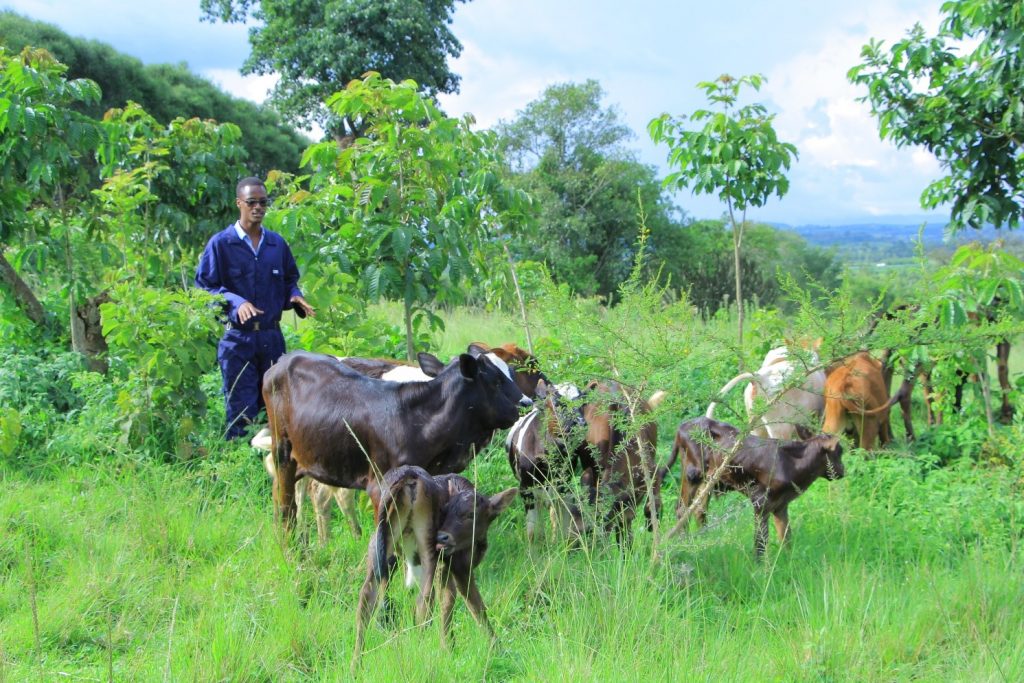Bachelor of Science in Agricultural Livelihoods and Farm Production
Bachelor of Science in Agriculture and Livelihoods (BSAL)
 The Bachelor of Science in Agriculture and Livelihoods (BSAL) is a unique programme that brings an interdisciplinary approach to agricultural development, integrating perspectives from agricultural sciences and social sciences. This holistic insight ensures that graduates can more effectively act as change agents in delivering agricultural transformation within the sector. The training will provide an understanding of how to facilitate appropriate innovations in farm production and agribusiness within a pro-poor growth agenda, and stimulate thinking about how to support equitable mechanisms that allow farmers to access market opportunities and engage in processes of agricultural commercialization. Emphasis is on delivery of how to improve livelihoods, productivity, through successful agricultural innovations and technology, financing options and investment. Furthermore, the programme emphasizes the importance of understanding the livelihood context and institutions that mediate productive use of key resources, to better prioritize, analyse and evaluate new technology, practice, or policy reforms. This also considers outcomes and pathways to broader livelihood resilience and food security. Graduates will be well-placed to respond to the ever-changing landscape of contemporary challenges facing the future of agricultural livelihoods and farm production that will support broader agricultural growth and national development.
The Bachelor of Science in Agriculture and Livelihoods (BSAL) is a unique programme that brings an interdisciplinary approach to agricultural development, integrating perspectives from agricultural sciences and social sciences. This holistic insight ensures that graduates can more effectively act as change agents in delivering agricultural transformation within the sector. The training will provide an understanding of how to facilitate appropriate innovations in farm production and agribusiness within a pro-poor growth agenda, and stimulate thinking about how to support equitable mechanisms that allow farmers to access market opportunities and engage in processes of agricultural commercialization. Emphasis is on delivery of how to improve livelihoods, productivity, through successful agricultural innovations and technology, financing options and investment. Furthermore, the programme emphasizes the importance of understanding the livelihood context and institutions that mediate productive use of key resources, to better prioritize, analyse and evaluate new technology, practice, or policy reforms. This also considers outcomes and pathways to broader livelihood resilience and food security. Graduates will be well-placed to respond to the ever-changing landscape of contemporary challenges facing the future of agricultural livelihoods and farm production that will support broader agricultural growth and national development.
The programme provides a strong understanding of the linkages between key concepts and connects these directly to practice and policy. Over the four years, from an interdisciplinary perspective, the course content will form the basis of an in-depth understanding of agriculture with strong emphasis on integrated livestock and crop-based farm production systems and value addition, culminating in sustainable agricultural-based livelihoods and economies. The following thematic areas are covered to reflect the need for knowledge and skills in optimizing livelihood options, strengthening community support and current extension farming skills for effective farm production systems:
- Basic principles in livelihood approaches and agricultural sciences
- Farming systems and entrepreneurship
- Supporting agro-based livelihoods transformation
In addition to technical skills and community facilitation for example, students will be supported in developing their transferable skills and employability, including competencies in information handling, analytical skills, numeracy, problem solving, team working and critical thinking in research, policy and practice. Graduates will have developed skills in for professional situations, including career management, time management, project management of their dissertation and field-level activities and communication.
